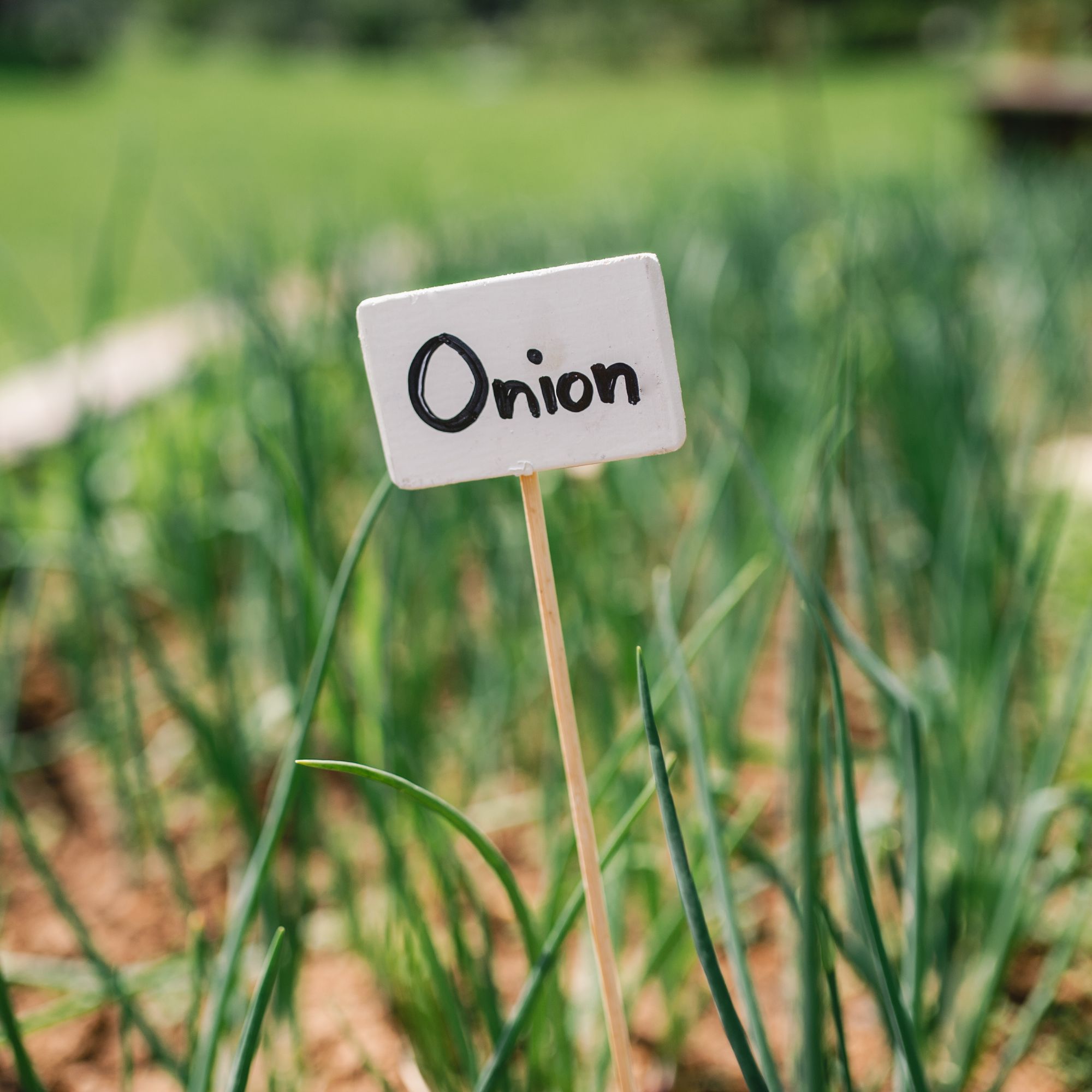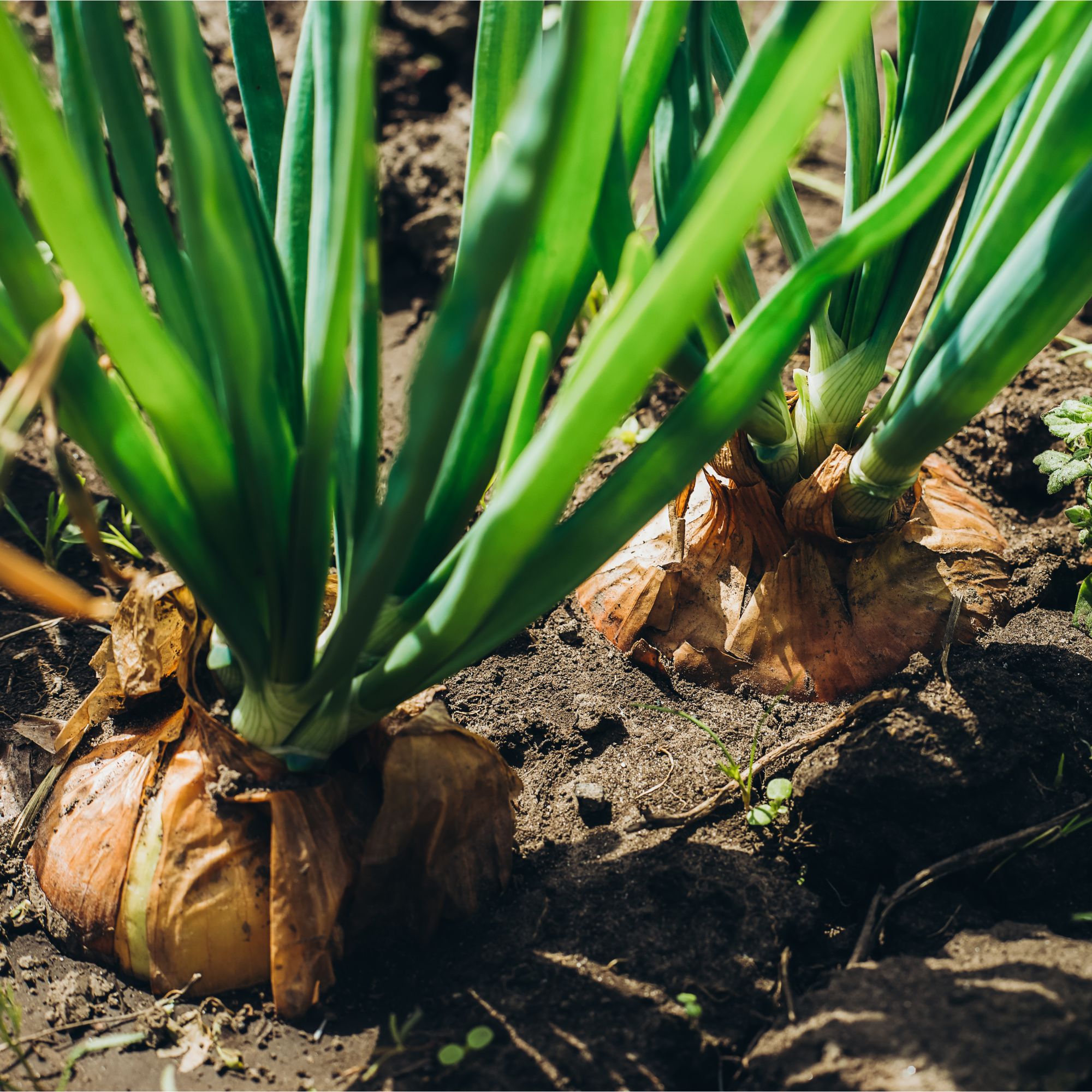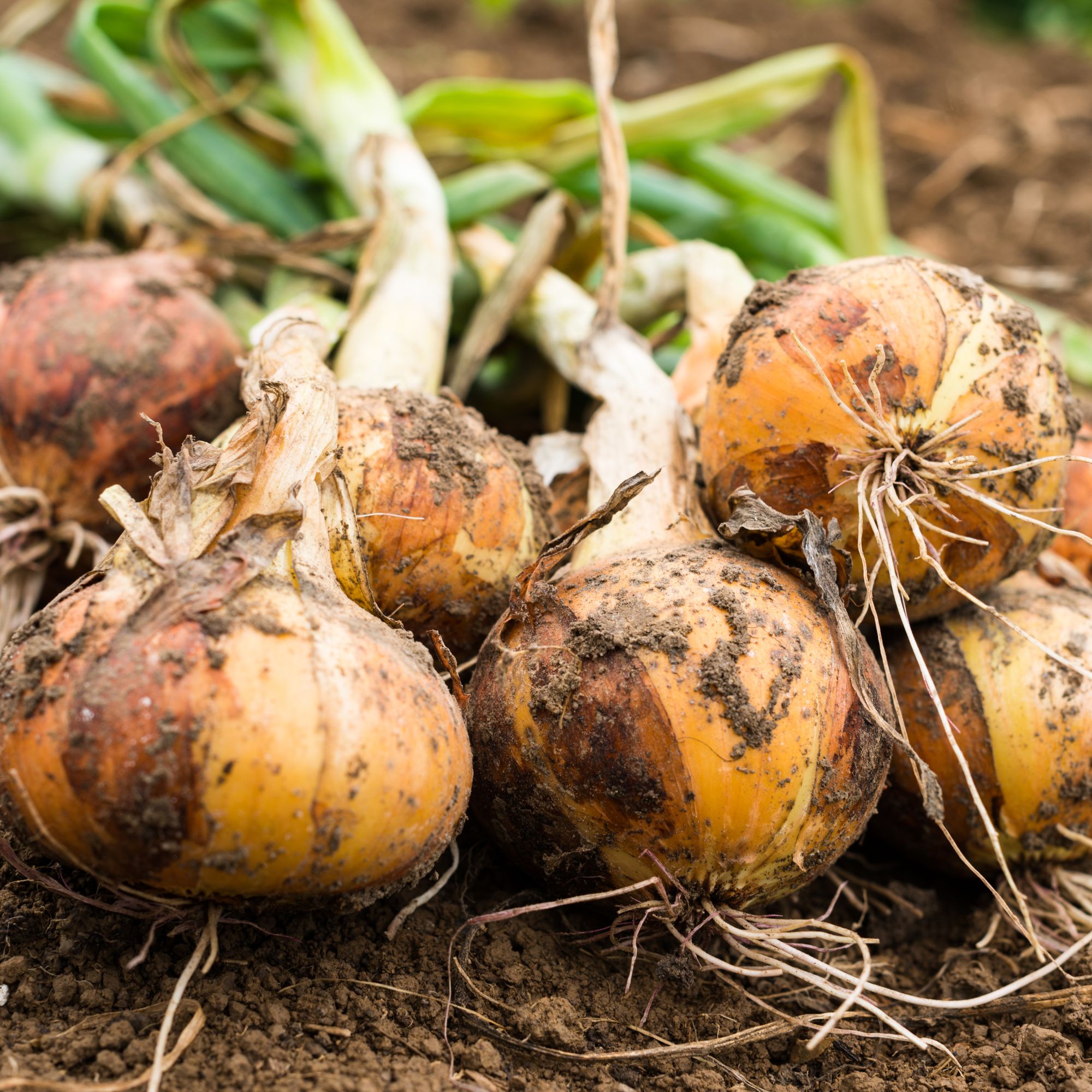
If you want to learn how to grow onions, you absolutely need to get to grips with onion sets: they are one of the best and easiest ways to get your own delicious crop of oniony goodness on the go!
Now, we all know that edimentals are big news in the gardening world at the moment – not least of all because growing our own fruit and vegetables is a savvy way to save money in this ongoing cost of living crisis.
So, with that in mind, here's how to transform a corner of your garden into a thriving onion plot...
How to grow onions from onion sets
If you're trying to suss out how to grow onions, most experts suggest that you swap that packet of onion seeds for an onion set instead.

'Onion sets are basically immature onion bulbs,' says Christopher O'Donoghue, one of the co-directors of Gardens Revived, 'and they are, without a doubt, one of the easiest and fastest ways to grow onions.'
The benefits of using onion sets over onion seeds are manifold. They're less likely to be affected by disease, for one, and they always result in an earlier crop. They're also ridiculously easy to suss out, too, even for the very greenest of gardeners.
What's not to love? Look this way if you want to learn how to master the art of the onion set, then...
What you will need:
When it comes to learning how to grow onions, the first thing you'll need to buy is an onion set.
Here are just a few of our favourite options:
- Thompson & Morgan: a wide variety of onion sets
- Crocus: a great selection of onion sets
- Amazon: a surprisingly good selection of onion sets
You will also need to pick up the following:
- A good weeding tool, like the Telescopic Carbon Steel Garden Weeder from B&Q
- A spade, like the Spear & Jackson Select Carbon Digging Spade from Homebase
- A peat-free soil-based compost, like Miracle-Gro Premium All Purpose Compost from Amazon
- A high potassium general fertiliser, such as Vitax Q4 from Amazon
How-to guide:
Keen to learn how to grow onions from onion sets, then? Look this way...
1. Prepare the area
Onions have limited root systems, so it's important to give them the best possible start to life.
'Find a sunny spot with well-draining soil, and weed the area thoroughly,' advises Christopher.

It's also a good idea to boost the quality of the soil by mixing in a good peat-free compost, and you can also apply a high potassium general fertiliser, too.
2. Get planting
Learning how to grow onions is unexpectedly easy, largely because the planting process is so simplistic.
'Push them 2cm deep into well prepared, loose soil in a row, spacing them about 10cm apart, and gently firm them in,' advises Morris Hankinson, founder of Hopes Grove Nurseries.
'If you are growing a lot of onions, then space the rows 30cm apart so you have space to get in between for weeding,' continues Morris, noting that 'onion plants don’t cast much shade so weeds can do very well in between them!'
3. Protect them at all costs
Morris says that you should water your onions well, to help them settle in, and suggests covering them with a protective garden fleece from Amazon to keep hungry birds at bay – just until everything is safely rooted in.
4. Wait patiently
The best bit about learning how to grow onions? Eating them, of course! However, your harvest time will depend on when you plant them: if you plant yours in the autumn (sometime between late September and early November), they should be ready by June or July.
If you're happy to wait for late-summer onions, however, you can plant them between March and April.
FAQs:
What is the best way to grow onion sets?
When it comes to planting onion sets, it's always best to prepare the soil well (weed it thoroughly and enhance the quality with a good compost and fertiliser) before sowing your immature bulbs.
Remember: there's no need to soak onion sets before planting
Will onion sets grow if planted too deep?
Try not to plant your onion sets too deeply, as this can affect the development of the bulbs.
'Onions should generally be planted with the tip of the bulb just below the soil surface,' says Christopher. 'That will likely be around 2 or 2.5cm deep.'
He adds that adhering to this rule will give your onions the chance to establish their roots and develop properly, while still having access to adequate air and moisture.'
How do I know when my onions are ready to harvest?
Onions are typically ready to harvest when their tops start to turn yellow and fall over – a surefire sign that the bulbs have stopped growing.
'At this point, bend the tops gently to accelerate the drying process,' says Christopher. 'Then, you can carefully pull the onions out of the ground. Be sure to leave them in a warm and airy place for a few days before storing them, as this will help them dry out nicely.'
And just like that, you've learned how to grow onions from onion sets! We promise that your soups and pasta sauces will never be the same again...







